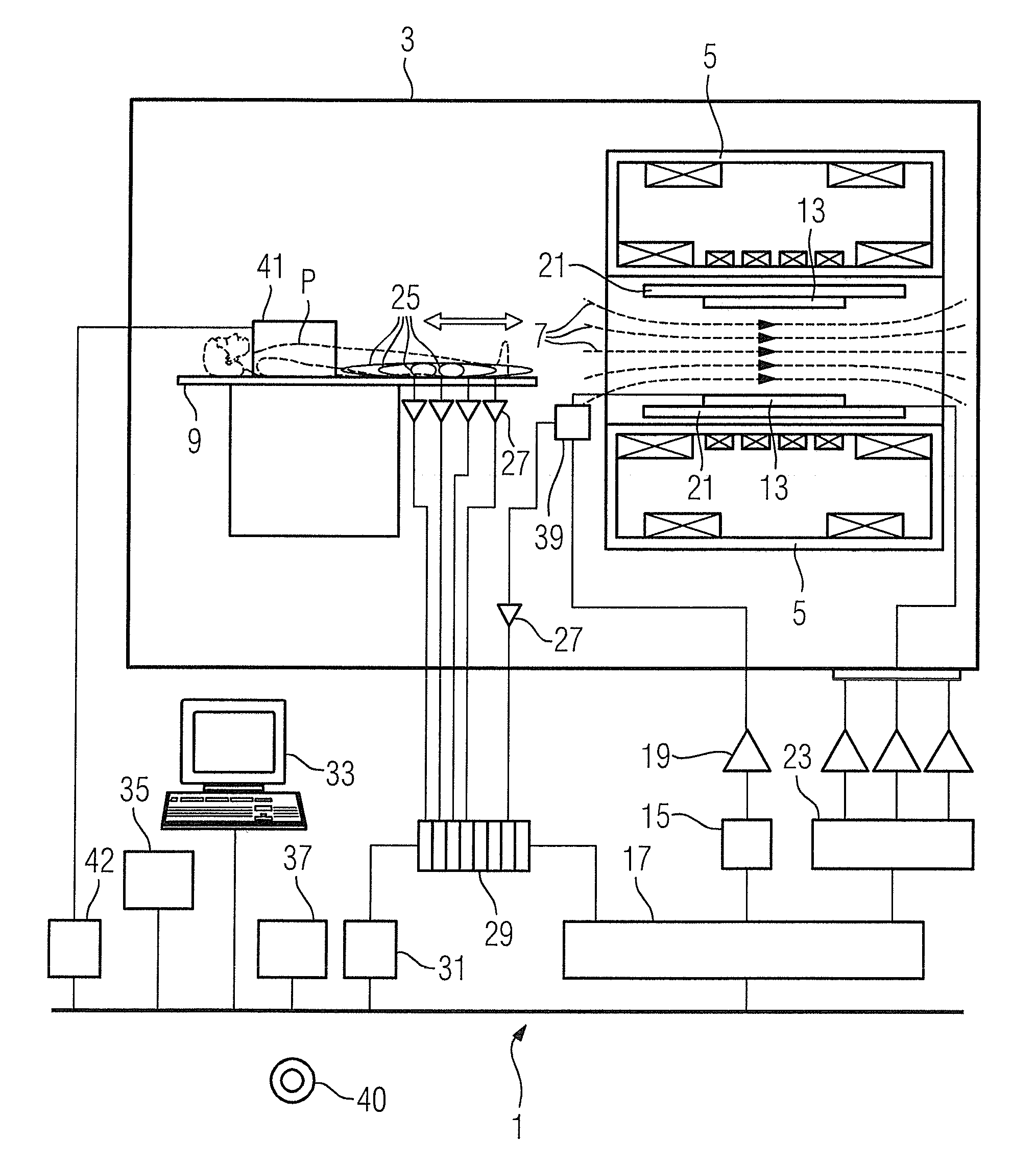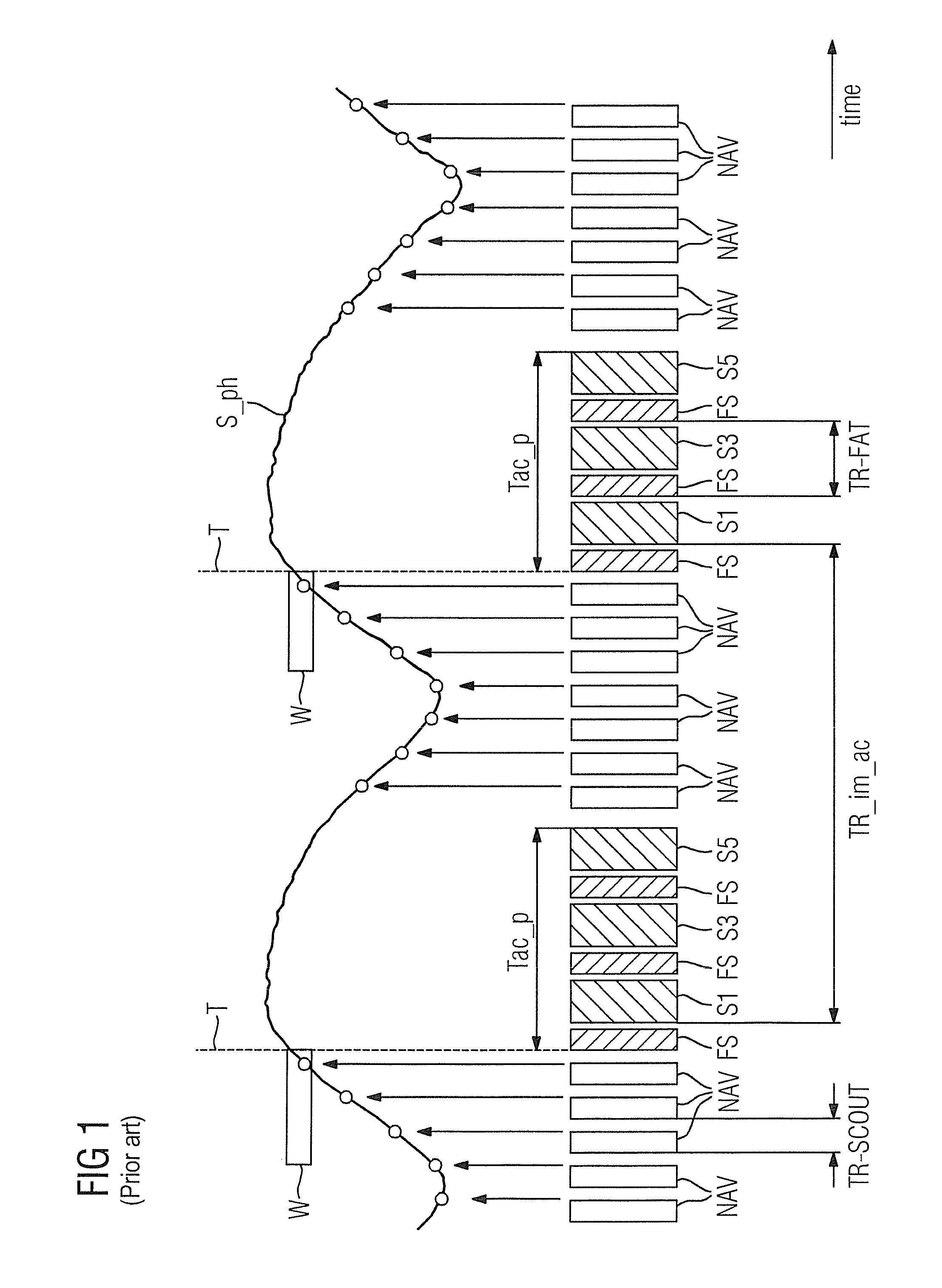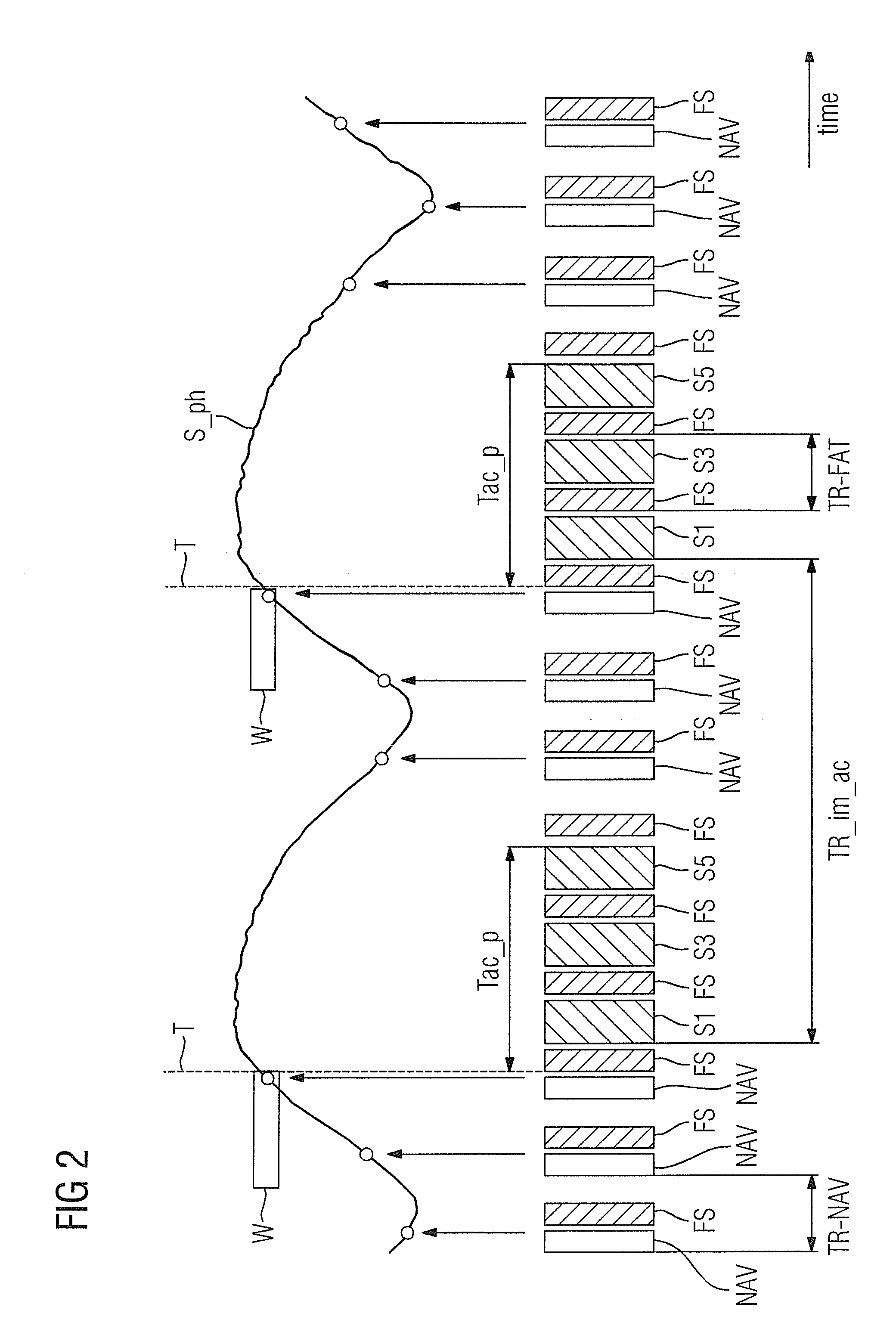Magnetic resonance method and apparatus for triggered acquisition of magnetic resonance measurement data
a magnetic resonance and measurement data technology, applied in the field of magnetic resonance method and apparatus for triggered acquisition of magnetic resonance measurement data, can solve the problems of pathological changes, blurring, and ghosting of reconstructed mr images, and achieve the effect of a longer duration of the preparation module and a higher specific absorption ra
- Summary
- Abstract
- Description
- Claims
- Application Information
AI Technical Summary
Benefits of technology
Problems solved by technology
Method used
Image
Examples
Embodiment Construction
[0054]FIG. 1 schematically shows the chronological workflow of an example of a sequence of a respiratory-triggered MR measurement. A navigator sequence NAV is initially repeated with constant time interval TR-SCOUT. The result of each navigator measurement is a physiological data point (represented as a circle) that, for example, corresponds to a diaphragm position and thus reflects the breathing movement. The solid line S_ph that connects the measured data points (circles) serves to better visualize the underlying movement and therefore is shown solid, although only the measured data points shown as circles are actually present in the examination. Instead of the detection of the physiological data points by means of what is known as a navigator sequence, the physiological signal (here: breathing signal) can also be detected by means of an external sensor (for example a breathing cushion or a breathing belt) that can be connected with the magnetic resonance apparatus. In this case, ...
PUM
 Login to View More
Login to View More Abstract
Description
Claims
Application Information
 Login to View More
Login to View More - R&D
- Intellectual Property
- Life Sciences
- Materials
- Tech Scout
- Unparalleled Data Quality
- Higher Quality Content
- 60% Fewer Hallucinations
Browse by: Latest US Patents, China's latest patents, Technical Efficacy Thesaurus, Application Domain, Technology Topic, Popular Technical Reports.
© 2025 PatSnap. All rights reserved.Legal|Privacy policy|Modern Slavery Act Transparency Statement|Sitemap|About US| Contact US: help@patsnap.com



